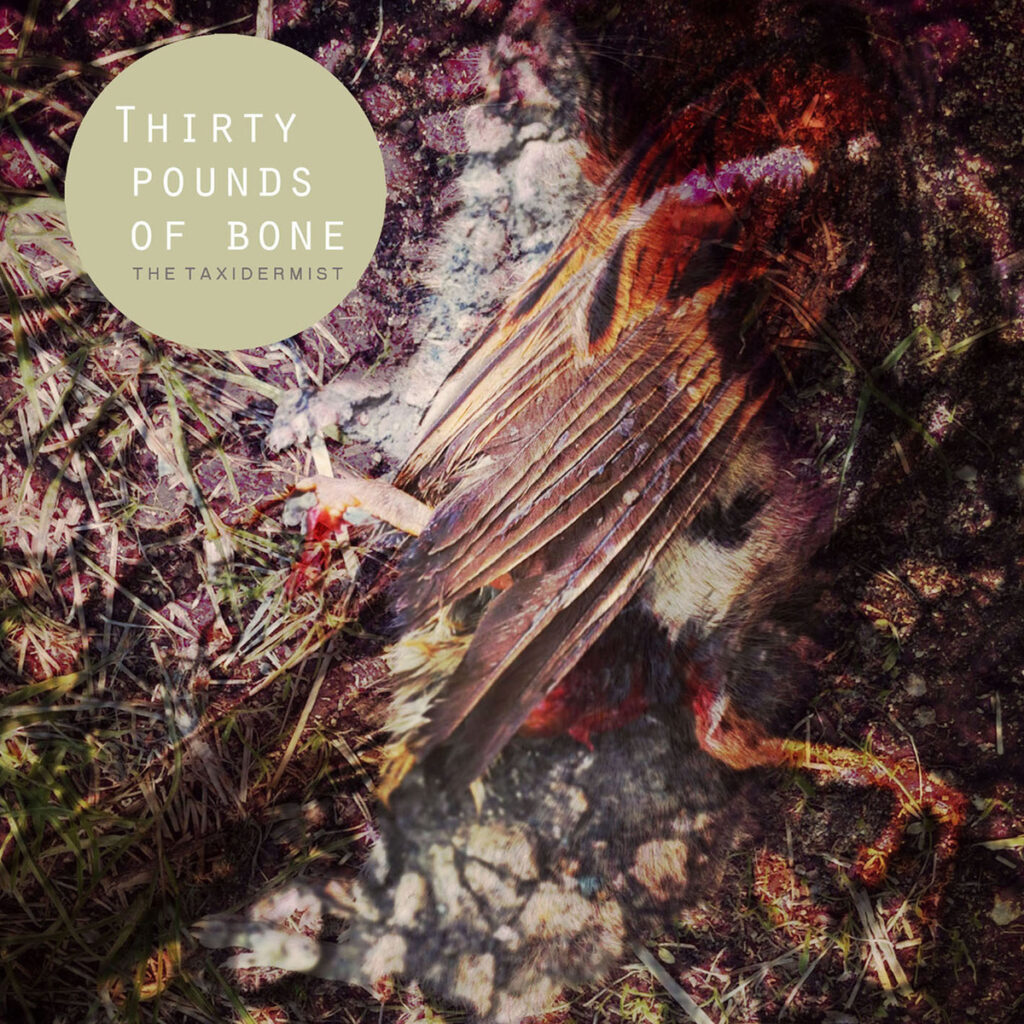Thirty Pounds Of Bone is a one-man-band: songwriter, composer, sometime producer and multi-instrumentalist Johny Lamb. I first became aware of him the best part of a decade ago, when I was living in Brighton. He was in the city too, en route from his Shetland birthplace to his current home in Cornwall, and leading something called the Drift Collective. Years later, I caught up with his music again at the urging of the singer-songwriter Chris T-T, who enthused about Lamb’s 2011 album I Cannot Sing You Here But For Songs of Where – correctly predicting that I’d enjoy the record’s resolutely un-nostalgic take on folk and its relationship to place. I’ve explored vaguely similar territory as one half of the Ninja Tune/Lo Recordings duo Grasscut but now, for the first time, Lamb and I are actually in touch – not as musicians but as music academics. Full disclosure: he’s invited me to speak at a conference he’s co-hosting next month. You’ll have to take my word for the fact that what I say below is not motivated by a fear of being heckled at that event.
Lamb’s three albums to date – I Cannot Sing You Here But For Songs Of Where was preceded by 2006’s The Homeless Children Of Migrant Mothers and 2009’s Method – established a mournful, melancholic sound, indebted to folk but avoiding tweedy retromania. Drones dominated; lyrical themes, meanwhile, included isolation, booze, the sea, and ‘geographic dissatisfaction’. Artists of the calibre of Hefner’s Darren Hayman have popped up as guests.
Now Lamb is putting out his fourth full-length album, The Taxidermist, on Scottish indie label Armellodie. Place and itinerancy are no longer overt lyrical themes. Instead he sings songs of love and death, sounding more wistful, tender and downright happy – or at least hopeful – than he has in the past. But as befits an artist apparently named after the weight of the human skeleton, and an album entitled The Taxidermist, Lamb’s lyrics remain on the edge of darkness: there’s robbery and revenge and, on ‘Two Birds In The Brine’, blood too. Then there’s tying money to thighs and ribbons round eyes on ‘Ribbon’ and, on ‘The Glass Of An Iris’, pushing clay into eyelids.
The music underpinning these words is, on the whole, less folk-indebted than on previous albums. The arrangements are hazy, draped in gauze, although the songs themselves are rock solid: it is a testament to the quality of writing that they can withstand being submerged in indie scuzz almost worthy of Kevin Shields. Beneath the distorted guitar, the choruses are anthemic, soaring; these are songs that get stuck in your head. The overall effect is a kind of shoegaze folk, at moments reminiscent of Creation Records in their heyday, at others of Chris T-T himself, who similarly straddles folk and indie rock, or a slightly less hip Panda Bear.
The Taxidermist also calls to mind the Mercury-nominated Diamond Mine album by King Creosote and Jon Hopkins: there are still some folk moments among the ten tracks, among them ‘Your Walk’, ‘Two Birds In The Brine’, ‘I’ll Go Too’ and ‘As You Held Me’. Lamb clearly enjoys distortion and straight-eight indie chug, yet the album begins with an analogue synth squiggle and there seems to be a drum machine on ‘Before I’m Done’. There’s even Sally Army brass on ‘Glass Of An Iris (although one does not imagine that Lamb, whose previous songs include ‘All For Me Grogg’ and ‘The Streets I Staggered Down’, is in favour of temperance).
Though this must be his most electric and eclectic album to date, The Taxidermist still seems coherent – not least because Lamb, hidden away in a West Cornwall cellar, played every instrument himself. I liked it a lot on first listen, and I like it more every time I hear it.
<div class="fb-comments" data-href="http://thequietus.com/articles/17470-thirty-pounds-of-bone-the-taxidermist-review” data-width="550">


